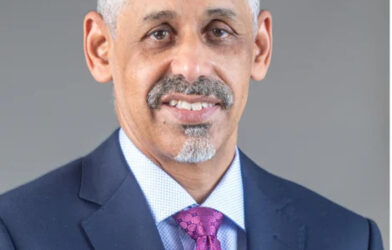Obese people have come out to complain that they are finding it difficult to fit into airplane seats, and are being charged excessively when they get seats.
In the United States for example, policies around plus-size travelers tend to vary from airline to airline.
plus-size travel influencer Jae’lynn Chaney to launch a petition urging the Federal Aviation Administration (FAA) to mandate all airlines for a comprehensive customer-of-size policy that “prioritizes the comfort and well-being of all passengers.”
“We need the policies to be a little bit more standardized,” Chaney (pictured above) told CNN Travel on Monday, June 12.
“At the bare minimum, we need every airline to have a policy that tells people of size how to navigate their airline.”
One of the various demands listed in Chaney’s petition, which had received over 17,000 signatures at the time of writing, is that all airlines “provide accessible additional seats to customers-of-size” who may require more space or “encroach onto another passenger’s space.”

“These passengers should be provided with an extra free seat, or even multiple seats, to accommodate their needs and ensure their comfort and safety, as well as those around them, during the flight,” reads the petition.
For Chaney, who has needed a seat belt extender from a young age, the issue is a hugely personal one.
“I kind of knew that planes were not built for people like me by the time I was 12,” she says, recalling trying to tuck her seatbelt underneath her stomach so that flight attendants couldn’t see that she hadn’t been able to buckle it.
“There was a really tight fit on the seats. And being such a young child at the time, traveling without my parents was really stressful for me. Because I didn’t know how to advocate for myself.”
Meanwhile, the “one person, one fare” (1p1f) policy, which prevented domestic airlines Air Canada, Air Canada Jazz and WestJet from charging passengers requiring an extra seat for more than one fare, was passed by the Canadian Transportation Agency in 2008.
Obesity is recognized as a disability in Canada, meaning passengers must be considered “functionally disabled by obesity,” to meet the requirements for a free extra seat.
However, the rule only applies to domestic flights, which means that plus-size travelers still need to buy an extra seat when going on an international flight.
Chaney feels that airline policies that require plus size travelers to buy an extra seat while flying are “discriminatory,” pointing out that passengers like her are “paying twice for the same experience.”
“People with smaller bodies get to pay one fare to get to their destination,” she says.
“And we have to pay two fares, even though we’re getting the same experience. If anything, our experiences are a little bit more challenging.”












Comments are closed